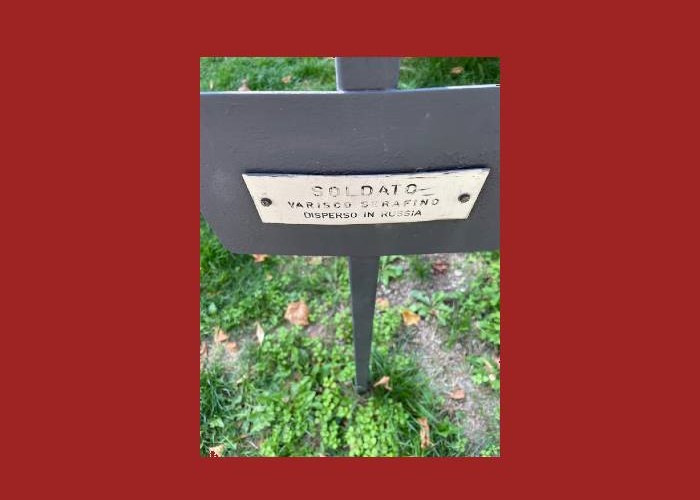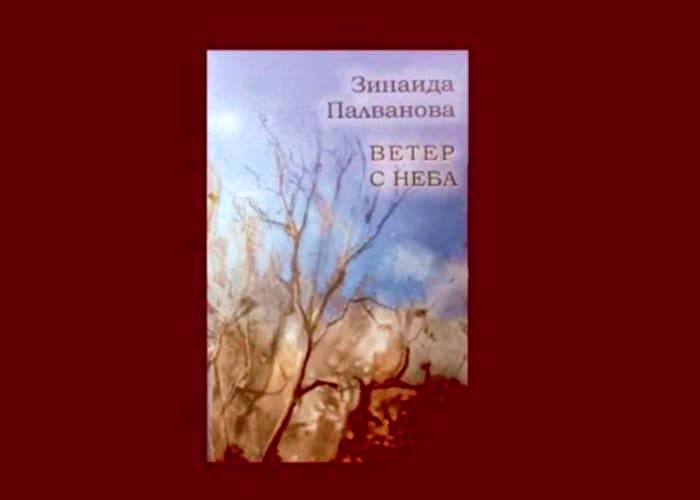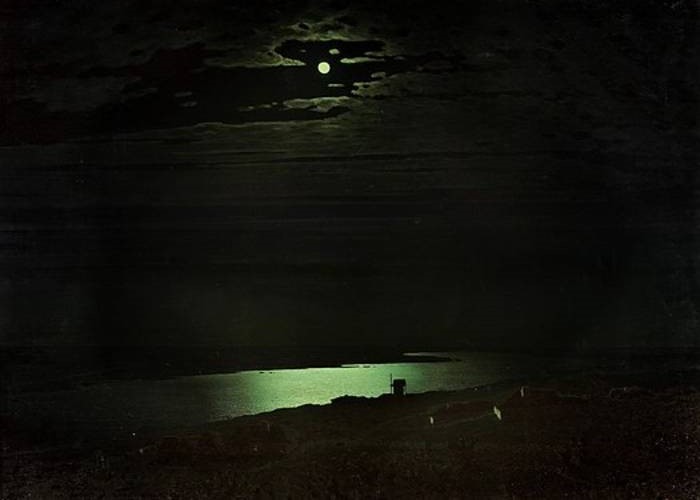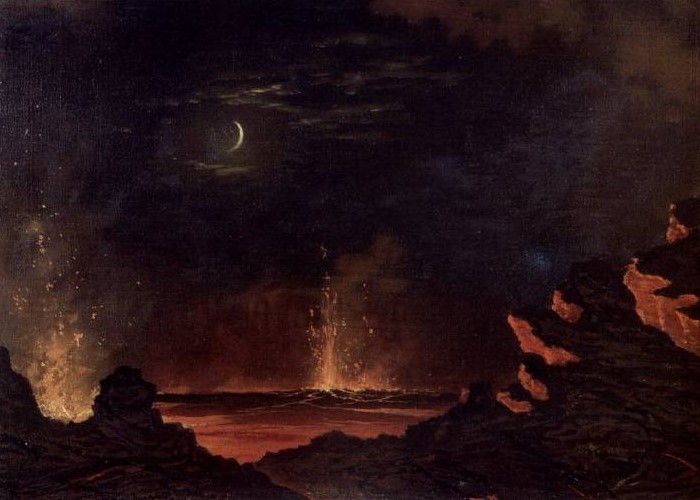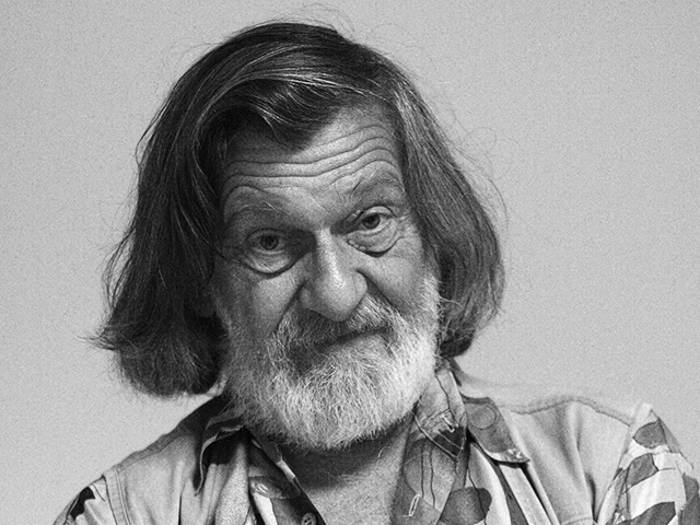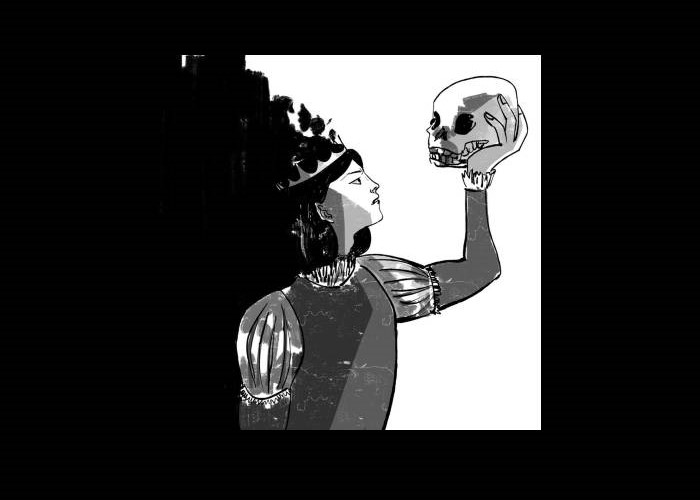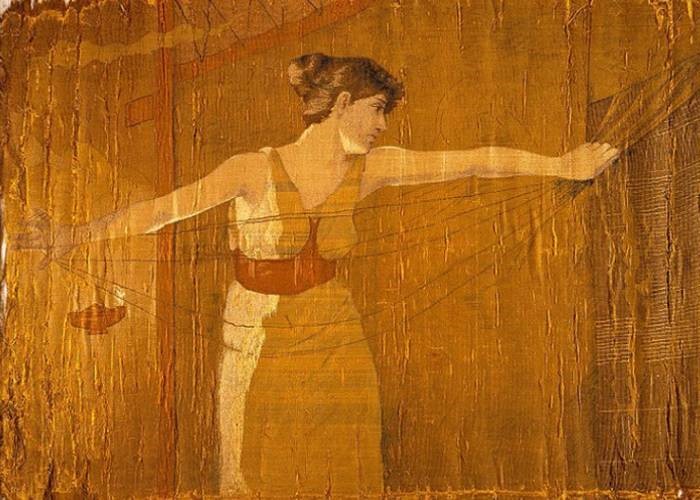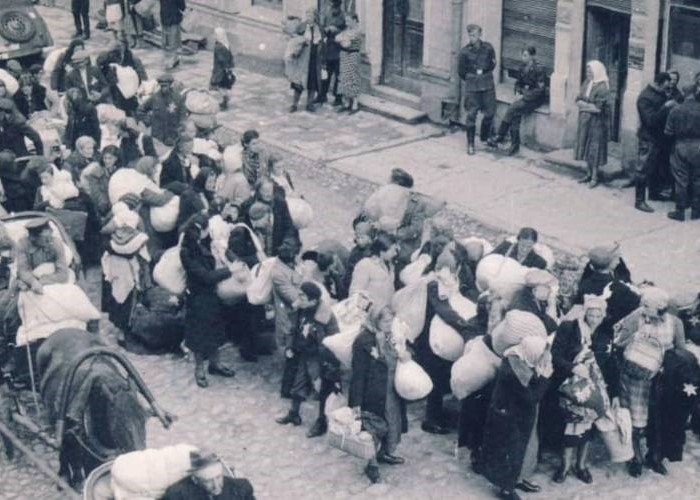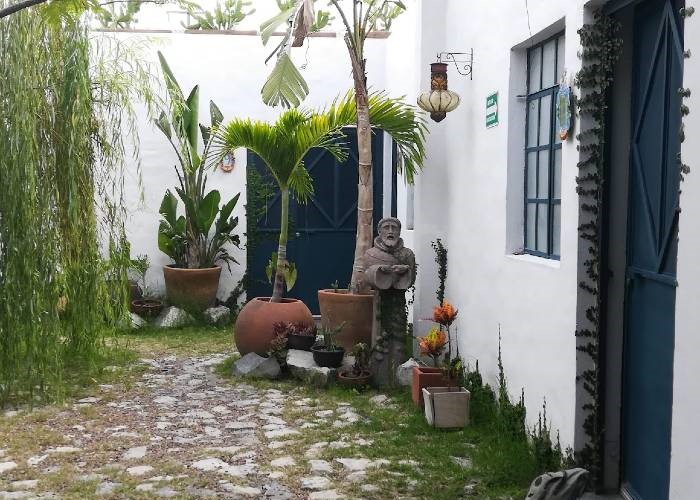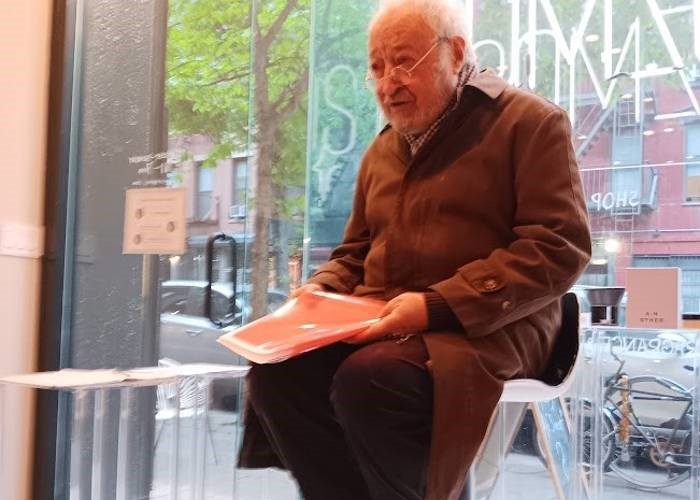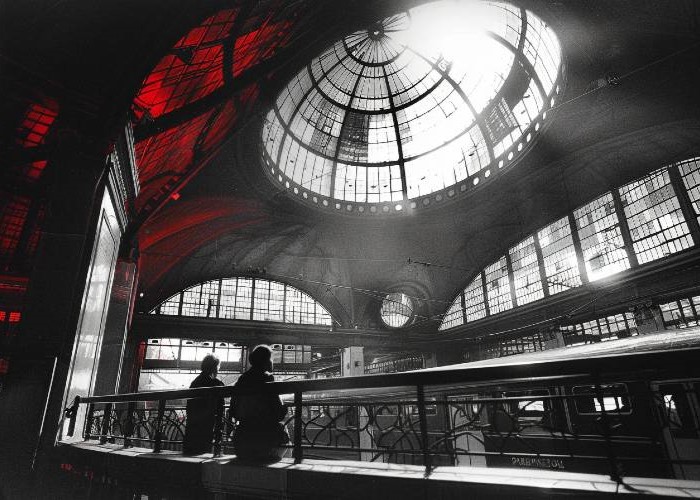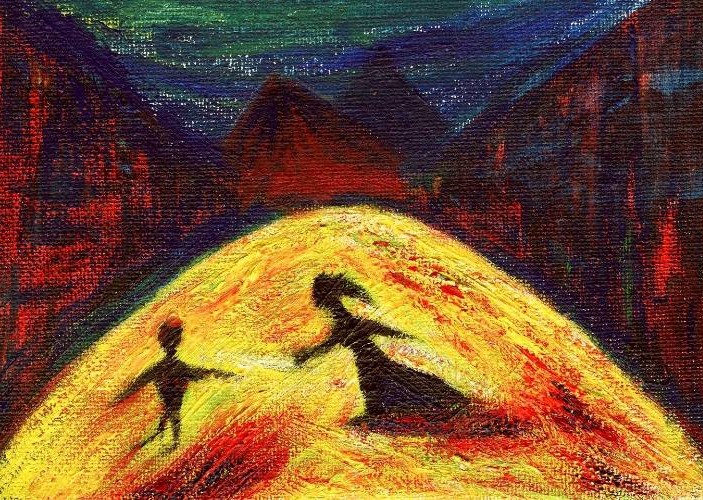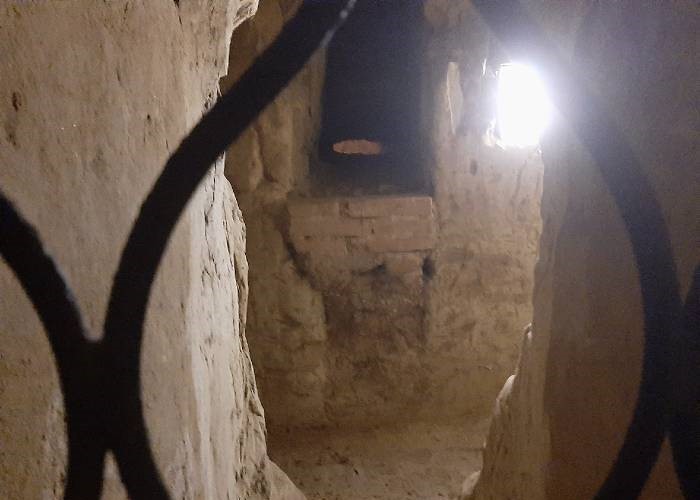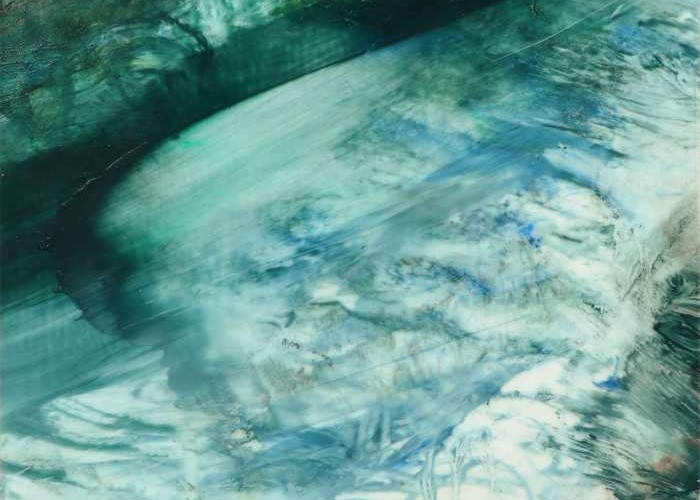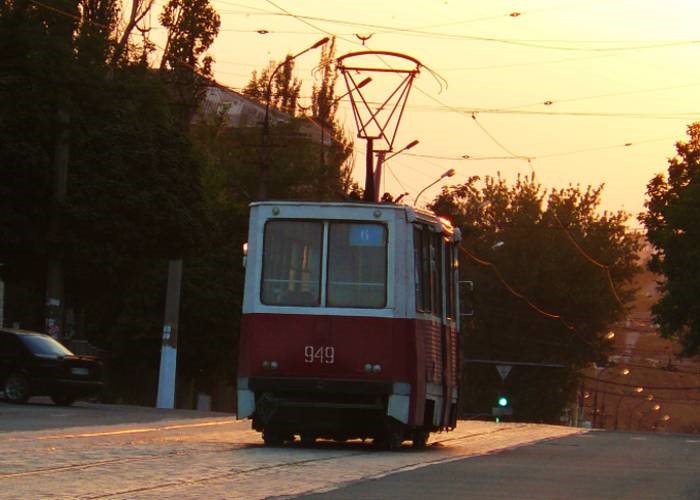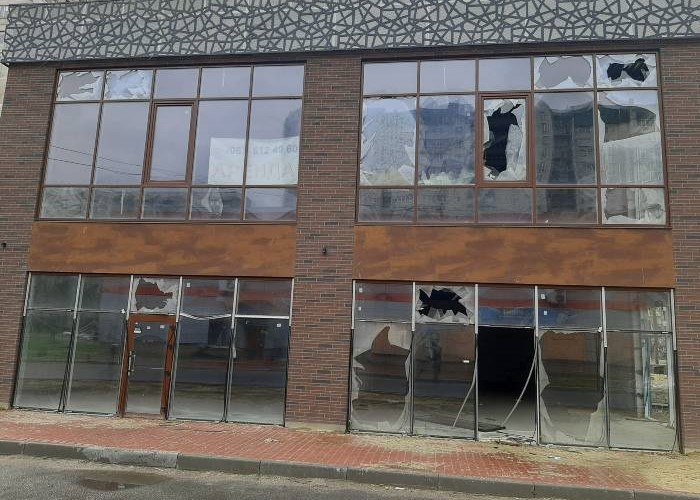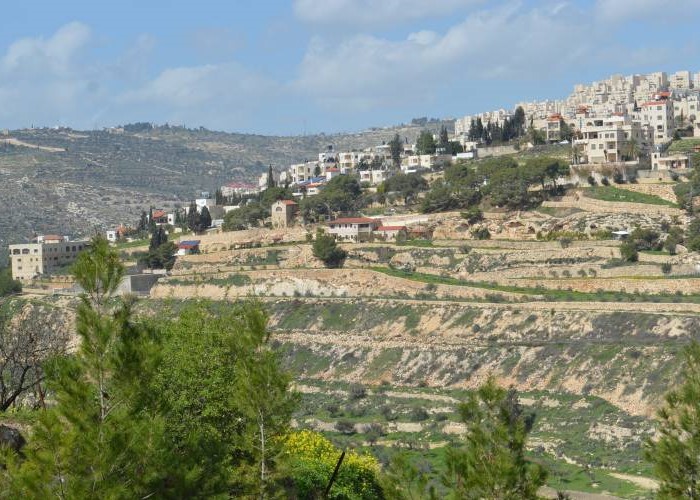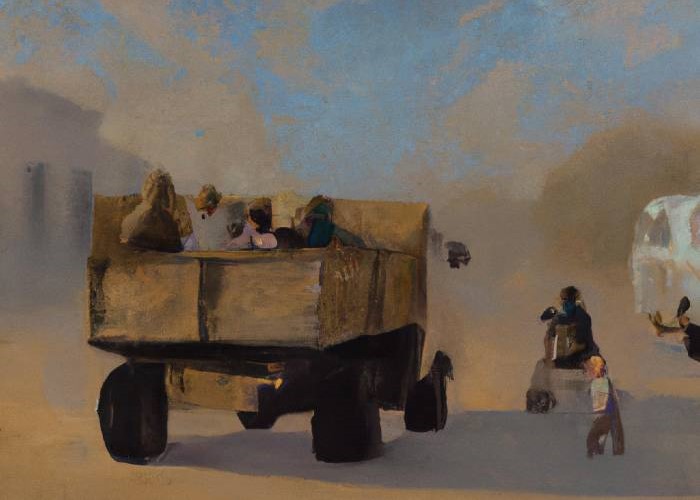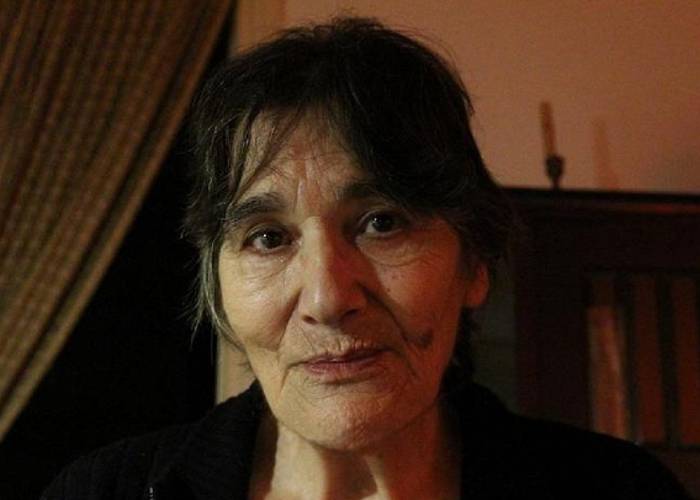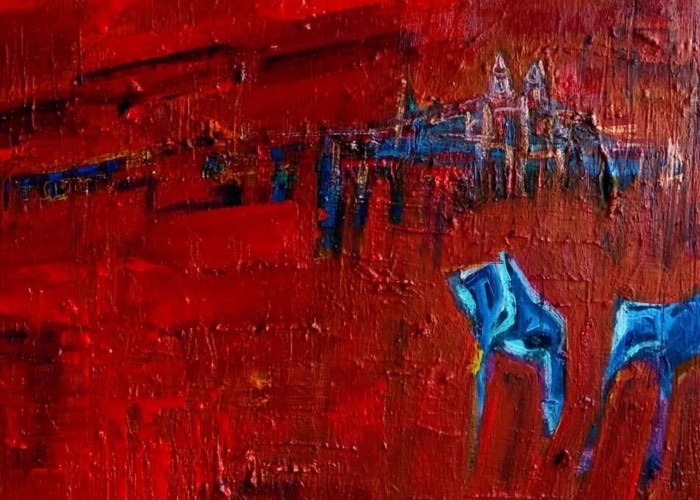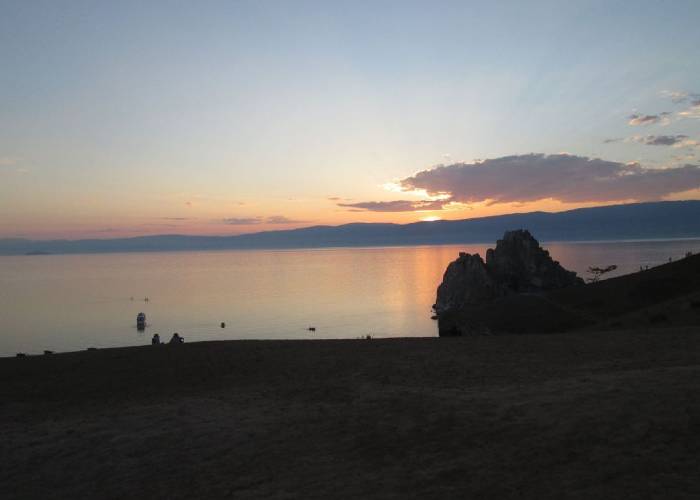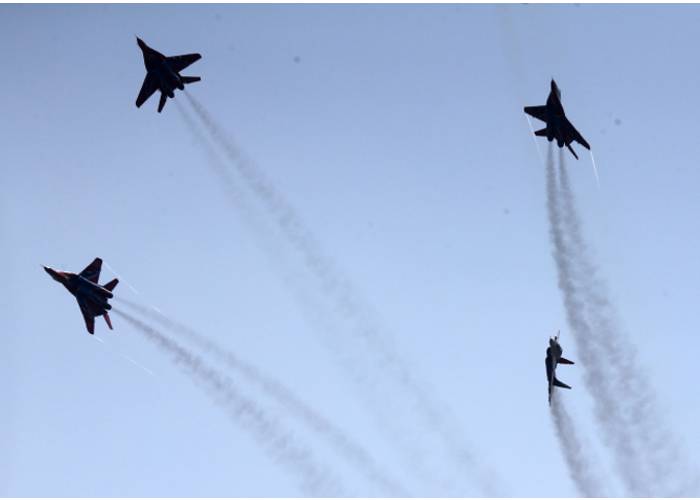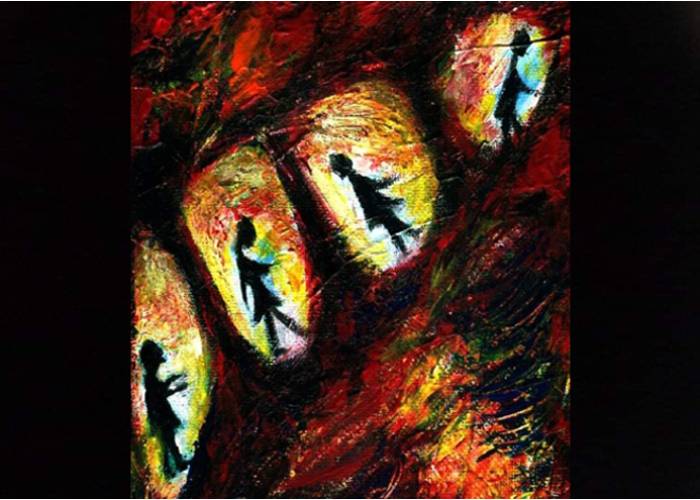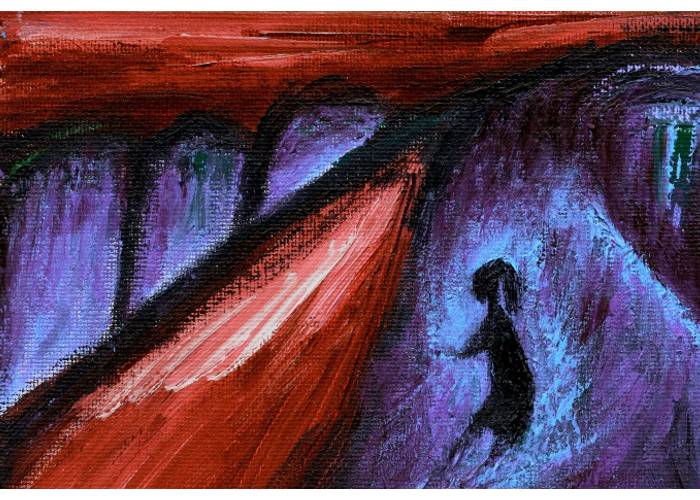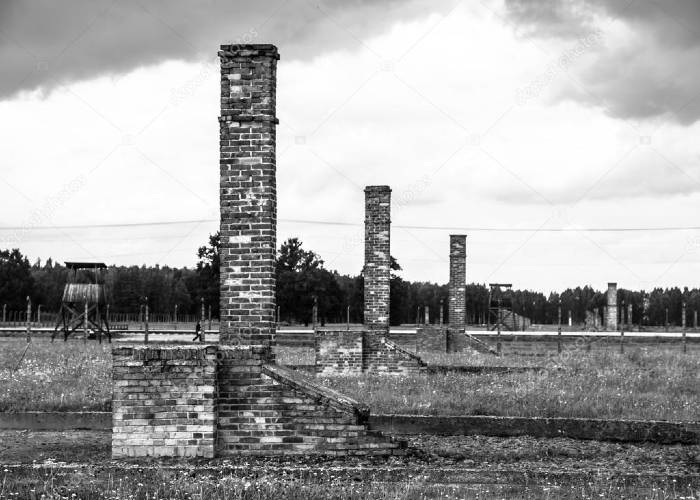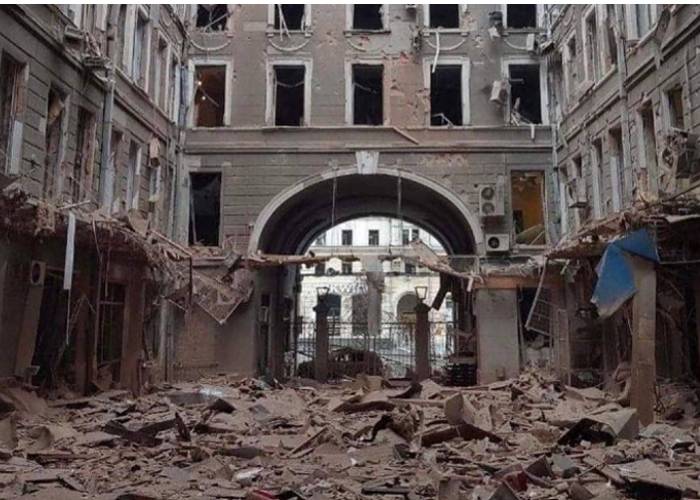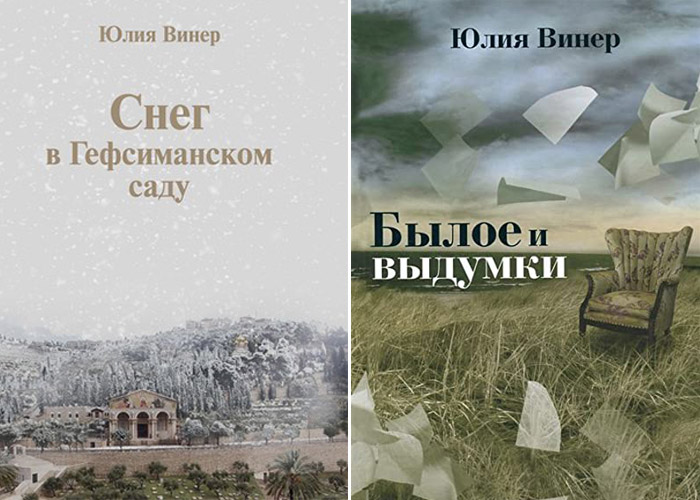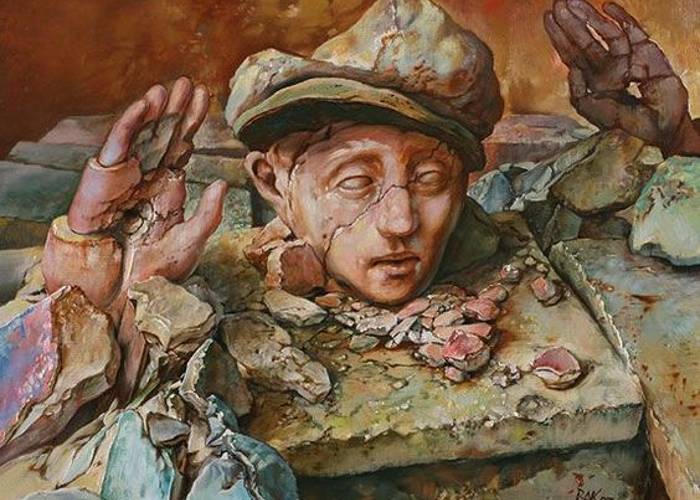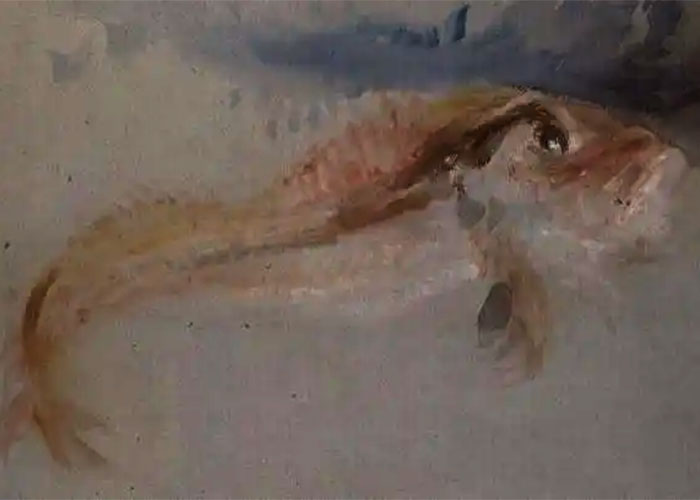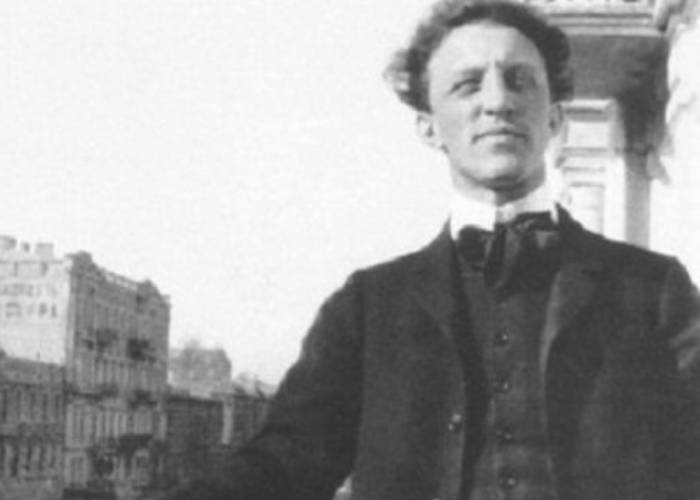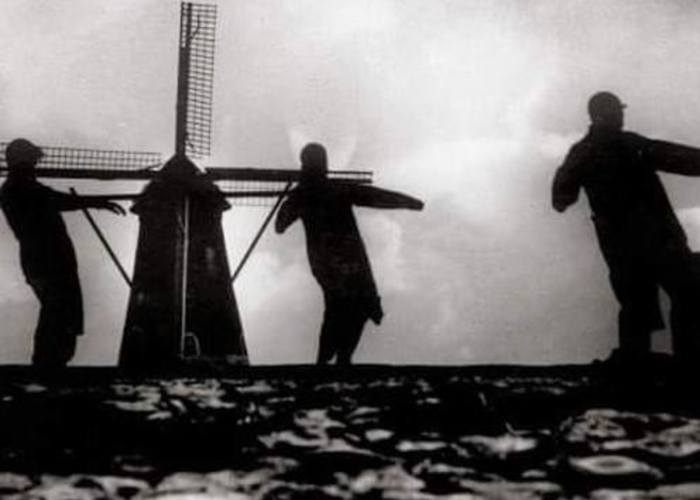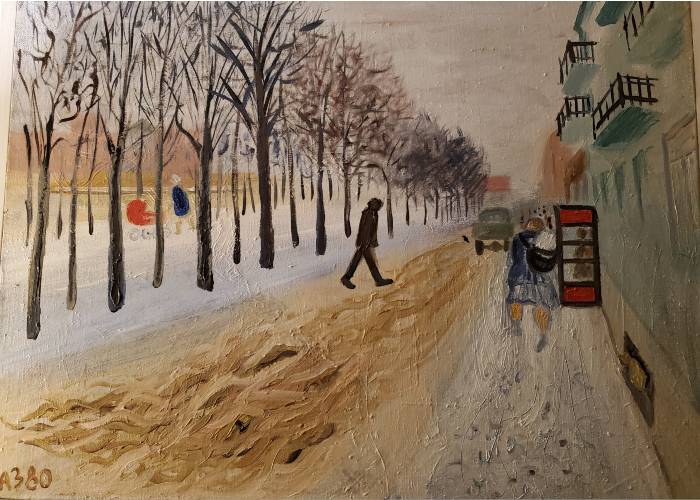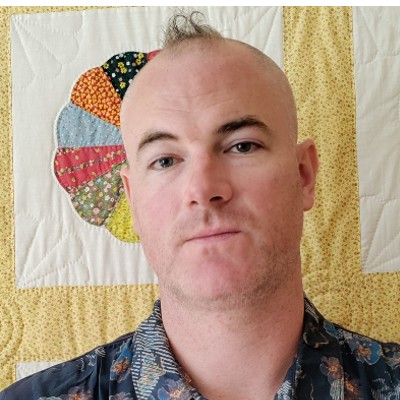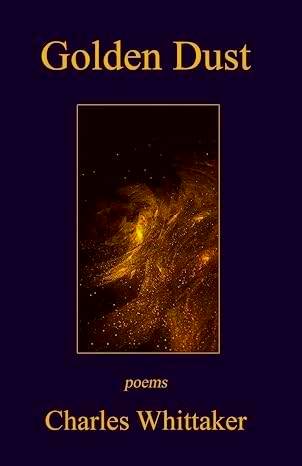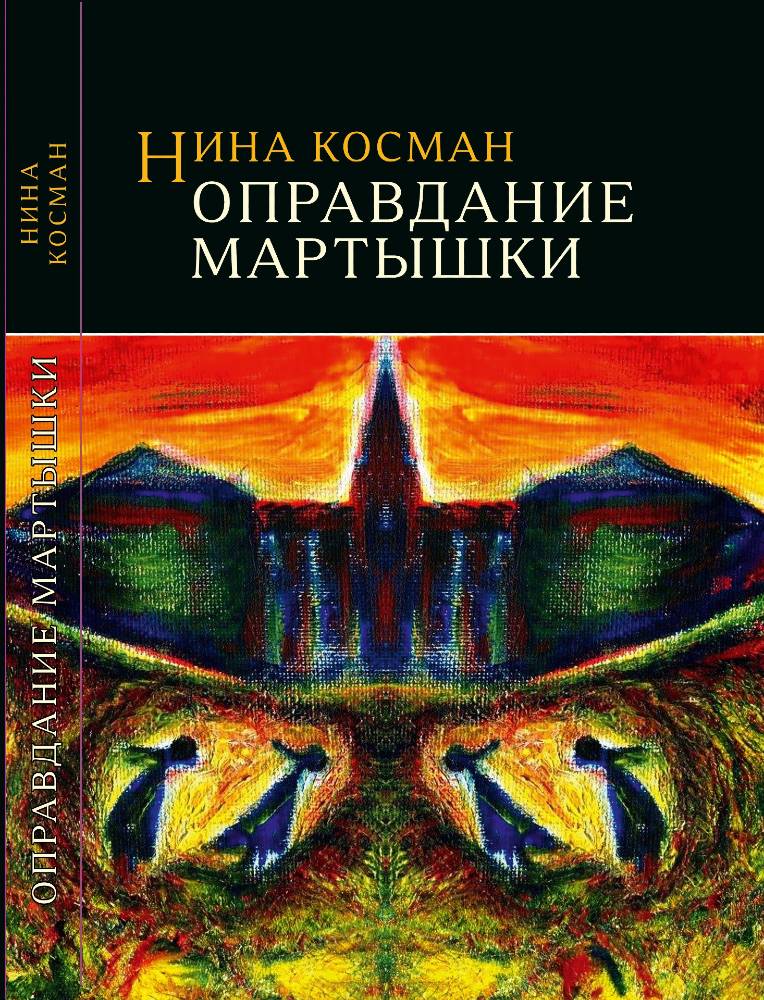How We Buried You I Don’t Remember
Sorry that, on the way home
from the burial, I probably counted crows.
How we buried you I don’t remember,
how the casket was lowered into the hole
my eyes don’t know.
It was a summer day. Those who stood there…
I don’t recall,
material
for dreams now.
Since then, no matter whom
I bury, I bury you. Your tomb,
your stone, with its laconic dates,
stands at attention, like that soldier
forgotten by eternity.
The forest makes a swirl
only to fall back before
the disorderly order.
Above, an indigo slope
piles up just out of view.
But down here? Wild turkeys, a whole slew.
A sign that I’m not talking to myself?
So many summers have passed,
and this last
doesn’t mean the strange dialogue’s through.
If you could, you’d joke too.
Samizdat
Oh, five-story concrete building, were you
my parent’s early-bird paradise, or were you
an ivory tower, where guests traded Moscow*
for Youth* where a soul woke up?
The extended phone line, head guardian
of each secret, even could call from the bathroom…
In the ear, the boiler’s chirring noise.
In the kitchen, Galich’s broken voice.
Like a Garden of Eden of sorts,
the bedroom set, imported from Hungary,
there by the wardrobe, my childhood trundle bed.
The stalwart, portly wardrobe wasn’t afraid
to hide, in a shoebox, Bulgakov’s Fatal Eggs.
Translated from Russian by Ian Ross Singleton
отцу
Прости, что возвращаясь с похорон,
наверное, считала я ворон,
не помню как тебя мы хоронили,
как опускали в яму гроб,
забыли
мои глаза.
Был летний день, и тех, кто там стоял,
я тоже помню смутно.
Матерьял
для снов теперь.
С тех пор, кого бы я ни хоронила
я хороню тебя, твоя могила,
твой камень с лаконичной строчкой дат,
как позабытый вечностью солдат,
стоит в строю.
Клубится лес вокруг, но отступает
перед нестройным строем,
голубая
над ними громоздится крутизна,
куда уже и взгляд не достигает,
а здесь индюшек диких стая.
Знак,
что говорю с тобой не без ответа?
Так много лет прошло,
и это лето
не оборвало странный диалог,
ты тоже пошутил бы, если б мог.
Самиздат
О, панельно-блочный дом пятиэтажный, —
Отчий рай досрочный, или был ты башней
Из слоновой кости, где Москву* на Юность*
Нам меняли гости, где душа проснулась.
Провод удлинённый, тайн хранитель главный
Телефон надомный, хоть звони из ванной.
Газовой колонки гул стрекочет в ухе,
Или голос ломкий Галича на кухне.
В спальне — райским садом — гарнитур венгерский,
Там, со шкафом рядом, мой топчанчик детский.
Шкаф вальяжный, крепкий прятать не боялся
В обувной коробке Роковые яйца.
* Moscow and Youth – Soviet literary magazines.
—
How We Buried You first appeared in Cardinal Points #7. Reading Samizdat first appeared in The Saint Ann’s Review.


